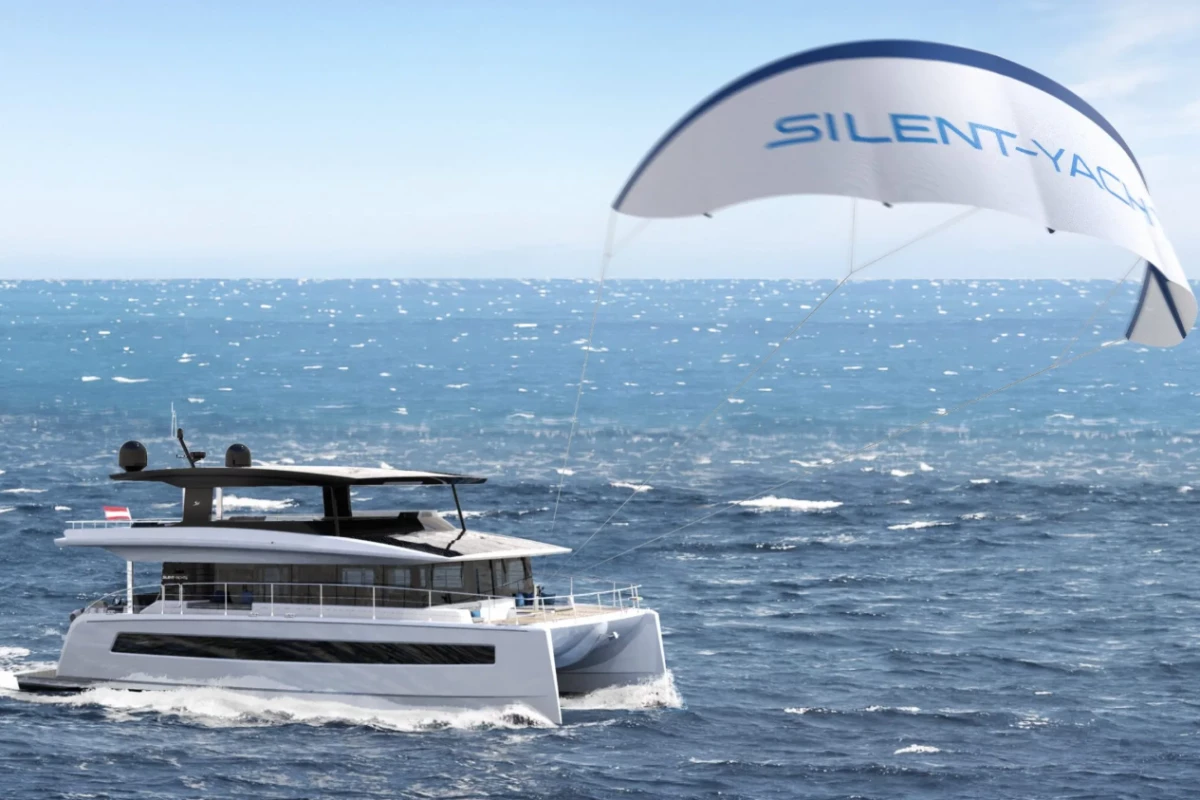Austrian boat-maker Silent Yachts has rolled out its latest solar electric catamarans, showing off a slightly longer vessel with a newly designed hull that allows greater performance across the water. Helping things along are a dozen more solar panels than the previous model, and an innovative kite wing for extra propulsion.
The newly introduced Silent 60 comes in the wake of Silent Yachts' solar-powered 55-ft (16.8-m) ocean-going catamaran, the Silent 55, which we most recently looked at in 2019. The new model stretches the length out to 60 ft (18 m), and features a redesigned hull with a longer waterline and an inverted or reverse bow, meaning the boat's most forward point is at the bottom rather than the top.
Power comes from 42 solar panels strewn across the top of the Silent 60 that combine for 17 kW peak and feed a 286-kWh battery, up from the 30 panels and 210-kWh battery featured in the Silent 55. Propulsion comes from a pair of 340-kW electric motors that, like the Silent 55, allow for a top speed of 20 knots (37 km/h, 23 mph), but bump the cruising speed as high as eight knots (15 km/h, 9 mph). The vessel is said to be capable of cruising up to 100 miles (161 km) each day on solar-power alone.
Stowed away in its own special box in the bow area is a handy tool that can supercharge the performance of the Silent 60. The light and compact kite wing uses a 2-ft (61-cm) mast and can be inflated with an electric pump in seconds. Once the winches and ropes are in place, it can simply be tossed overboard and started from the surface of the water, drifting away and up with the wind to cut figure eights 120 m (400 ft) in the sky.

In full flight, the kite has a surface area of 13 sq m (139 sq ft) and is said to generate up to 10 times more power per square meter than a conventional sail. It can add as much as five knots (9 km/h, 6 mph) to the speed of the boat and also lessens the draw on the electric motors, in turn extending its range.
The draft of the boat has also been shortened to less than one meter (3.3 ft), allowing it to pull safely into shallow bays like those found in the world's tropical regions. It can be handled easily by a crew of two people, but with four guest cabins and a flexible layout, the vessel has plenty of room for entertaining in the main saloon, bow and flybridge. There is also storage space onboard for SUPs, kayaks and other water toys.
Silent Yachts says that 17 orders have already been placed for the Silent 60, and eight of the vessels are currently under construction. It will also be showing off the new boat at this year's Cannes Yachting Festival in September. Prices start at €2.2 million (US$2.6 million).
Source: Silent Yachts







